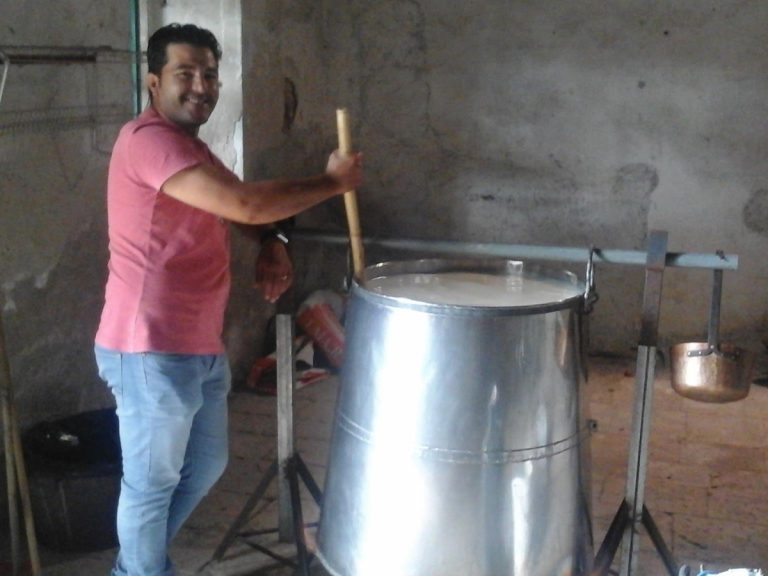The Gambero Rosso Foundation, created with the aim of bringing attention and emphasis on social and research issues, created a column dedicated to women, not so much because we believe in the so-called "pink quotas" but because it is essential to talk and raise awareness on gender equality. And it is equally essential to be spokespersons for women who have achieved important goals in their sector. Here is the interview with Camilla Lunelli, Head of communication and external relations at Cantine Ferrari.
Interview with Camilla Lunelli
In your work experience, what were the obstacles you faced as a woman?
In my work experience, both previous and within our company, I have never experienced discrimination as a woman. However, I believe that our social system is still set up in a way that penalises the role of women. In fact, it's expected that mostly women manage family commitments, especially with the birth of children, which implies an important gap compared to the man's duties, in terms of availability of time, energy and consistency. This often pushes women to take a back-burner position in the workforce.
How can women overcome these obstacles?
I am fortunate to have a husband by my side who believes that a fair division of family duties is important. This has allowed me to continue to follow the many commitments and travel that my work requires, even after the birth of our 3 children, and for him to conjugate his professional commitment with the chance to enjoy fatherhood in a full and enriching manner.
In your current role, what management leverage are you using to facilitate the female world?
I am happy to work with an all-female team and to offer growth opportunities while at the same time meeting their family needs as much as possible. I would love to do this also with men and fathers, thus encouraging the redistribution of roles and therefore leaving the doors open in this sense.
In addition, I try to talk often about these issues and I believe it is important to be part of associations such as Donne del Vino and the Bellisario Foundation, always very attentive to these kinds of topics, which they undertake to bring to the attention of public opinion, in the hopes of accelerating otherwise very slow changes.
What changes would you propose to government authorities to speed up the achievement of parity?
Given that I have never really liked the concept of "pink quotas" over the years I have become convinced that they can still represent a useful accelerator of the social change process, with the aim of eliminating them as soon as possible, because they are no longer necessary. Furthermore, I believe it is important to see more women fill positions with decision-making roles, both in institutions and in public and private companies.
Certainly, social support policies are needed that meet the needs of women, encouraging wage equality, access to the labour market and family-work reconciliation, trying to change the cultural approach on the latter. Looking at a medium-term perspective, I believe it could also be positive to encourage girls to approach university courses in scientific subjects, perhaps with outlets in the world of technology and the digital realm, destined to be increasingly central in the future.
What methods and formulas can you suggest to raise awareness and make the male world aware of this gap? A gap which, moreover, also has consequences on GDP.
I am convinced that talents are distributed equally between men and women, therefore, statistically if more than 50% of the hires are men, the best talents are not necessarily being brought into the company. So certainly this element has an impact on GDP, precisely because at times we risk losing female talents. I believe it's important to work on eliminating the prejudice that often still exists in hiring a woman fearing that she may "give" less than a man. But to do this, as mentioned before, it is necessary to achieve an equitable distribution of unpaid work in the family between men and women.
What message or advice can you give to women who have the ability and desire to emerge, in particular to those who are still struggling, and to the younger generations?
My advice is to have confidence in your abilities and pursue your project with conviction and commitment, while knowing the sacrifices that this can entail. Equally important in my opinion is absolutely not giving up the joy of family. This requires seeking, always tiring but possible, a balance between the two worlds that can only be achieved by sharing with one's partner––on an equal basis––the workload required by family. For this reason, I believe it's very important to work on gender education and pass it on to children of both sexes, from very early childhood.
Please share an anecdote (positive or negative) of one of your experiences on the subject.
I have always believed strongly in the importance of gender education, also through offering girls and boys positive examples of women who have pursued their dreams and left a mark, in the most varied fields. This is why I have read many times to my children "Goodnight Stories for Rebel Children", which presented the life of great women from all over the world. On the occasion of the release of the version of the book dedicated to Italian women, in 2021, I had the emotion, the honour and the privilege of being selected among the 100 women portrayed in the book. I don't think my story has anything extraordinary, but for this very reason I hope it can encourage some children not to be discouraged at the prospect of combining a satisfying professional journey with a rich and intense family life.


 Burgundy’s resilience: growth in fine French wines despite a challenging vintage
Burgundy’s resilience: growth in fine French wines despite a challenging vintage Wine promotion, vineyard uprooting, and support for dealcoholised wines: the European Commission's historic compromise on viticulture
Wine promotion, vineyard uprooting, and support for dealcoholised wines: the European Commission's historic compromise on viticulture A small Sicilian farmer with 40 cows wins silver at the World Cheese Awards
A small Sicilian farmer with 40 cows wins silver at the World Cheese Awards Women are the best sommeliers. Here are the scientific studies
Women are the best sommeliers. Here are the scientific studies Where to eat at a farm stay in Sicily: the best addresses in the Provinces of Trapani, Palermo, and Agrigento
Where to eat at a farm stay in Sicily: the best addresses in the Provinces of Trapani, Palermo, and Agrigento






